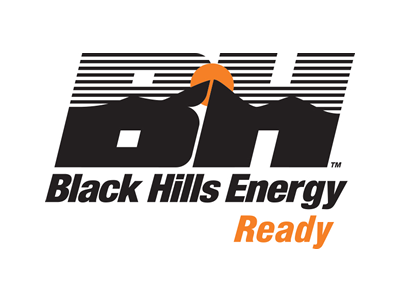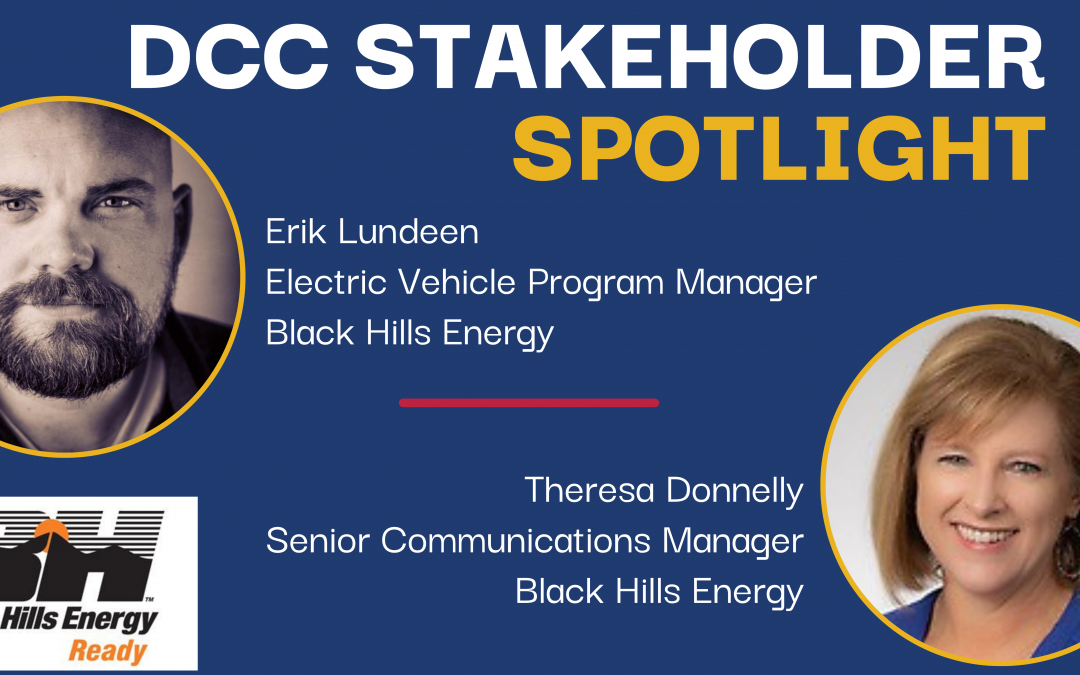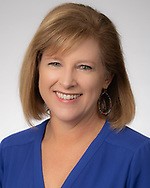We are thrilled to highlight our partnership with Black Hills Energy, a utility company that prioritizes their customers and sustainability. We spoke with Erik Lundeen, Electric Vehicle Program Manager, and Theresa Donnelly, Senior Communications Manager, at Black Hills Energy. Keep reading to learn more about Black Hills Energy, their new Ready EV program, and more.

*Note: The following answers are summarized from an interview with Erik Lundeen and Theresa Donnelly from Black Hills Energy
Could you start with an introduction and share your roles at Black Hills Energy?
Erik: I am Erik Lundeen, and I am the Electric Vehicle Program Manager here at Black Hills Energy. That includes our electric territory not only in Colorado but through Cheyenne Wyoming and Rapid City in the Black Hills area of South Dakota. Recently, I’ve been tasked with implementing our new Ready EV Program for our electric customers. I’ve been in this position now for just over 90 days and at the company for a little over four years. My background is in programming project management both within and outside of the utility industry.
Theresa: I am Theresa Donnelly, and I am a Senior Communications Manager at Black Hills Energy. I work in our Corporate Communications Department and have been tasked with designing and implementing our customer communications and education plan for Ready EV. I provide communications support for all of our electric utilities as well as some of our broader enterprise projects.
How can the programs at Black Hills Energy assist in advancing clean transportation in Colorado?
Erik: First and foremost, it comes down to our communications and education plan. We want to educate our customers, not only on the benefits of driving electric but also by dispelling some of the myths out there about EVs because they really are more accessible than people realize. Ultimately, the more EVs we see on the road, the more customers are going to become familiar with them and see them as more attainable. Pairing that education with our rebates for charging stations and removing some of that cost hurdle can really assist in the advancement of clean transportation in Colorado.
Theresa: I’ll jump in and build a little bit more on the communications side. We started our program in Colorado with research to understand what our customers know about electric vehicles and what their barriers to adoption might be. Our service territory here is very diverse, and we want to make sure that our communications speak to the diverse needs and interests and interests of our customers —we want to meet our customers where they’re at. So much of what we do with our programs at Black Hills Energy is data-driven, but it’s with a full understanding of our customers.
Could you talk about Black Hills Energy’s Ready EV program and particularly the commercial rebates?
Erik: Our Ready EV program provides cash rebates to cover a significant portion of the cost of EV charging equipment and installation. Ready EV charger rebates are available to both residential and business customers receiving electric service from Black Hills Energy in Colorado, South Dakota, and Wyoming. Colorado’s program is a little different because it is regulated by the Public Utilities Commission and informed by our transportation electrification plan which incorporates a Time-of-Day (TOD) rate, a pricing option for Colorado electric bills that encourages off-peak charging and usage times.
We have different commercial rebates for the Level 2 and Level 3 fast chargers. For Level 2 chargers, we pay out up to $2000 per port for multifamily housing or business use and up to $3000 per port for government agencies or nonprofit groups. For Level 3 chargers, we offer up to $35,000 per unit, depending on the speed of the charger. We want our commercial customers to understand the benefits of investing in charging infrastructure for their businesses. EV chargers are part of the new amenities list and people are starting to alter behavior based on where charges are located.
Theresa: For a business, EV charging is important for their customers but also for their employees. For example, Black Hills Energy has had a charging station in our employee parking in Pueblo for a couple of years now and it’s exciting to see traffic picking up and people using it. While Ready EV is in its early stages, we want to be visible in the community and model it ourselves – we put our money where our mouths are.
Can you touch on what Black Hills Energy is doing for underserved communities and how your programs are able to serve them?
Erik: Through our Ready EV programs, charging installation and new or used vehicle rebates can make the transition to electric more affordable, and therefore more accessible. We try to keep our programs moderate by weighing out how can we do as much as possible for our customers while being conscious of the costs of their monthly bills. There are outreach opportunities and events on the calendar for later this year to strategically reach out to customers in underserved communities. As we continue to see manufacturers commit to EVs, used vehicle inventory grow, and purchasing prices go down, these grassroots meetings are an important way to get the word out that EVs are accessible and a good option when considering a vehicle purchase.
Theresa: Additionally, we have some deep ties to community groups which serve income-qualified communities and customers. In partnership with these groups, we’re going to be hosting small neighborhood meetings to create a space for customers to learn about EVs and understand the benefits of these vehicles. We’re taking vehicles and our experts out into communities to offer experience and guidance. We’re also reaching out to property and apartment managers to show that our programs are by design, inclusive, and it’s not just for high-end EV drivers but it’s for everyone.
Are there any current programs you’re working on at BHE that you would like to share?
Erik: Fleet electrification is a really big initiative for us. We understand that diesel buses are huge generators of emissions and so we’ve met with Mayor Gradisar of Pueblo and First Student, the transportation contractor for D70, to start talking about what would it look like to get an electric bus downtown Pueblo for the citizens as well as some electric school buses. There’s a lot of funding coming from the state and the federal level for transit and school buses, especially, so we’re excited to partner with them and see how we can help.
Another interesting thing about Black Hills Energy is our collaboration with neighboring utilities. People seem to think that we’re competitors, but we’re not in the traditional sense. For the longest time, utilities have had set service territories and whoever lives there are your customers, but for the first time, we’re sharing customers. We have customers from Pueblo that might go to Denver for a Broncos game and charge their vehicle, well now they’re Xcel Energy customers. Customers from Denver may come to Pueblo for the State Fair or the Chile Festival and charge their vehicle, well now they’re our customers. So, being collaborative and working together with some of these neighboring utilities is key for us to really understand where our initiatives are lining up and to make sure that we’re not doubling efforts. We ask ourselves how we can partner with them, I think that’s an exciting and unique aspect in the utility world.
Theresa: When we think about what our objective is here in Colorado through these transportation electrification plans, it’s to promote the widespread adoption of electric vehicles. We are following the state’s policy objectives and ambition of having a million EVs on the road as soon as 2030, so you must have the infrastructure in place to make this happen. As Erik said, our customers don’t just stay in our defined service territory, and they need to feel confident that they can get where they want to go across the state. Everyone wins when the utilities are collaborating.
See more DCC Member Spotlights or learn more about joining DCC today!




